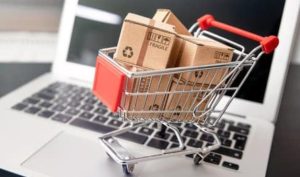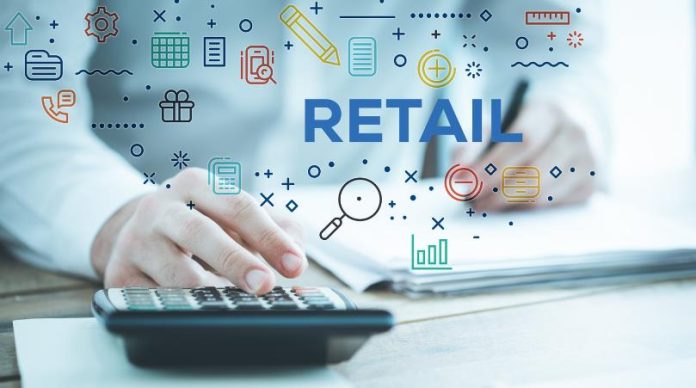Table of Contents
In an era of technological advancements, the retail sector increasingly turns to innovative solutions to address environmental concerns and embrace sustainability. In fact, it’s not only retail. More and more businesses from different industries are trying to do good for the environment. For example, Lottoland, the digital lottery tickets provider, has planted around 2 million trees worldwide in 2021.
Technology not only enhances operational efficiency but also offers many opportunities for retailers to reduce their environmental footprint. Let’s delve into some key ways technology can pave the way for a more sustainable future in retail.
Don’t forget to check our retailer’s guide to adopting sustainable business practices.
How Can Technology Help Retail Become More Sustainable?
1. Smart Inventory Management

Efficient inventory management is critical for reducing waste and energy consumption in the retail supply chain. Advanced technologies, such as RFID (Radio-Frequency Identification) and IoT (Internet of Things), enable retailers to monitor and manage inventory in real time. This prevents overstocking and stockouts and minimizes the need for expedited shipping, reducing carbon emissions associated with transportation.
2. Sustainable Packaging Solutions
Technology plays a pivotal role in the development of eco-friendly packaging alternatives. Retailers can leverage biodegradable materials, 3D printing, and smart packaging designs to reduce the environmental impact of packaging. Additionally, augmented reality (AR) and virtual reality (VR) can create immersive packaging experiences, fostering a sense of connection between consumers and sustainable products.
3. Energy-Efficient Operations
Integrating smart technologies, such as smart lighting, heating, ventilation, and air conditioning (HVAC) systems, can significantly reduce energy consumption in retail spaces. Automated energy management systems and machine learning algorithms optimise energy usage by analysing patterns and adjusting settings accordingly. This reduces costs and contributes to a more sustainable and eco-friendly retail environment.
4. E-commerce Optimization

The rise of e-commerce brings with it both challenges and opportunities for sustainability. Efficient route planning algorithms and last-mile delivery solutions powered by artificial intelligence can enhance delivery efficiency, reducing fuel consumption and emissions. Additionally, implementing green data centres for online platforms contributes to a more sustainable digital retail ecosystem.
5. Eco-Friendly Supply Chain Tracking
Blockchain technology is revolutionising supply chain transparency, enabling consumers to trace the journey of products from origin to shelf. This ensures the authenticity of sustainable claims and encourages ethical sourcing practices. Blockchain’s decentralised nature minimises the risk of fraudulent or misleading information, fostering trust between retailers and environmentally conscious consumers.
6. Data-Driven Sustainability Analytics
Big data analytics allows retailers to gain valuable consumer behaviour and preferences insights. By analysing this data, retailers can make informed decisions about product offerings, supply chain optimisation, and marketing strategies that align with sustainability goals. This data-driven approach helps in the reduction of unnecessary waste and resources.
7. Collaborative Consumption Platforms

Collaborative consumption is gaining traction, with technology-facilitating platforms enabling consumers to share, rent, or resell products. Peer-to-peer marketplaces and digital sharing platforms reduce the demand for new products, leading to decreased production and lower environmental impact.
FAQs
1. Can renewable energy sources be integrated into retail operations?
Retailers can harness solar, wind, or other renewable energy sources to power their stores and warehouses, reducing reliance on non-renewable energy and lowering their carbon footprint.
2. What is the role of AI (Artificial Intelligence) in sustainable retail practices?
AI can optimize supply chain logistics, predict demand more accurately, and reduce excess inventory. It can also automate energy management systems, ensuring efficient use of resources and reducing environmental impact.
3. How can retailers leverage virtual reality (VR) or augmented reality (AR) for sustainability?
VR and AR can enhance the shopping experience by providing virtual try-ons, reducing the need for physical product samples. This can minimize waste associated with product testing and returns.
4. Are there technologies that help retailers track and improve their carbon footprint?
Yes, there are carbon footprint tracking tools that use data analytics to monitor and analyse energy usage, transportation emissions, and other factors. This information helps retailers identify areas for improvement. One popular tool is the Greenly Calculator.
5. Can technology assist in promoting circular economy practices in retail?
Technologies like reverse logistics systems, which facilitate product returns and recycling, can support the implementation of circular economy principles, reducing waste and promoting sustainable practices.


